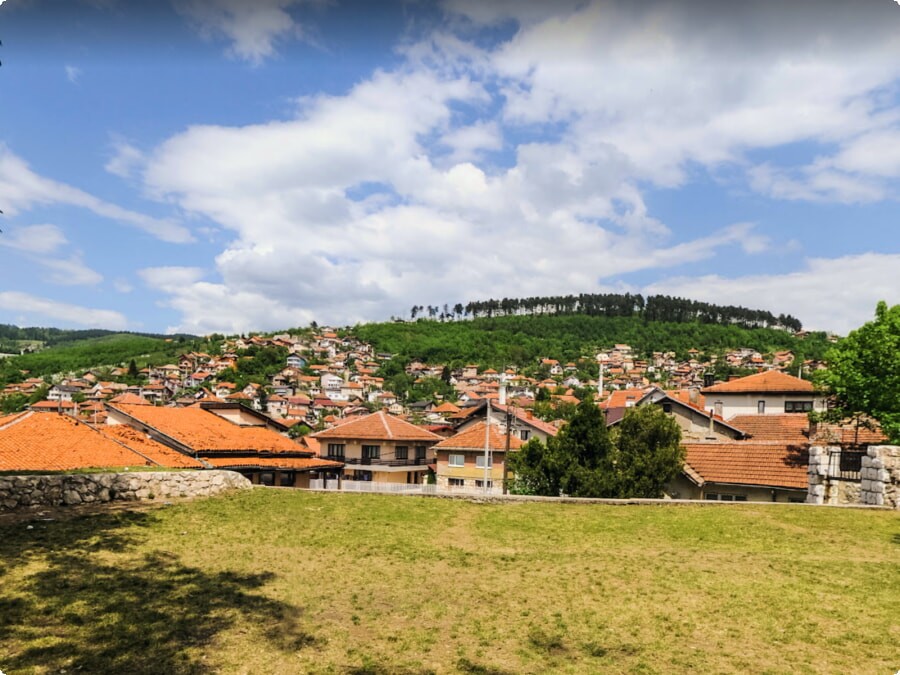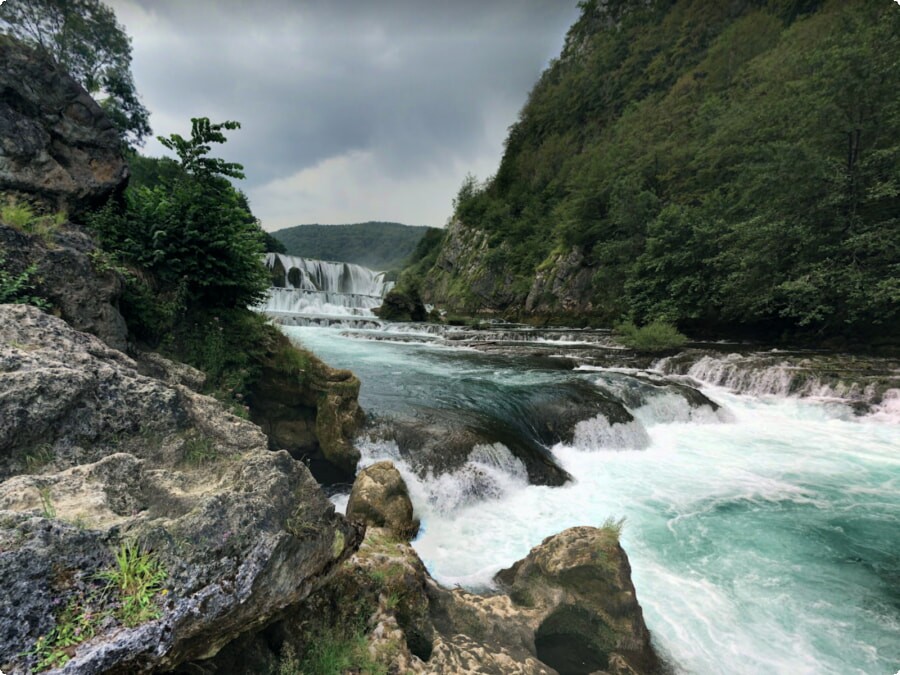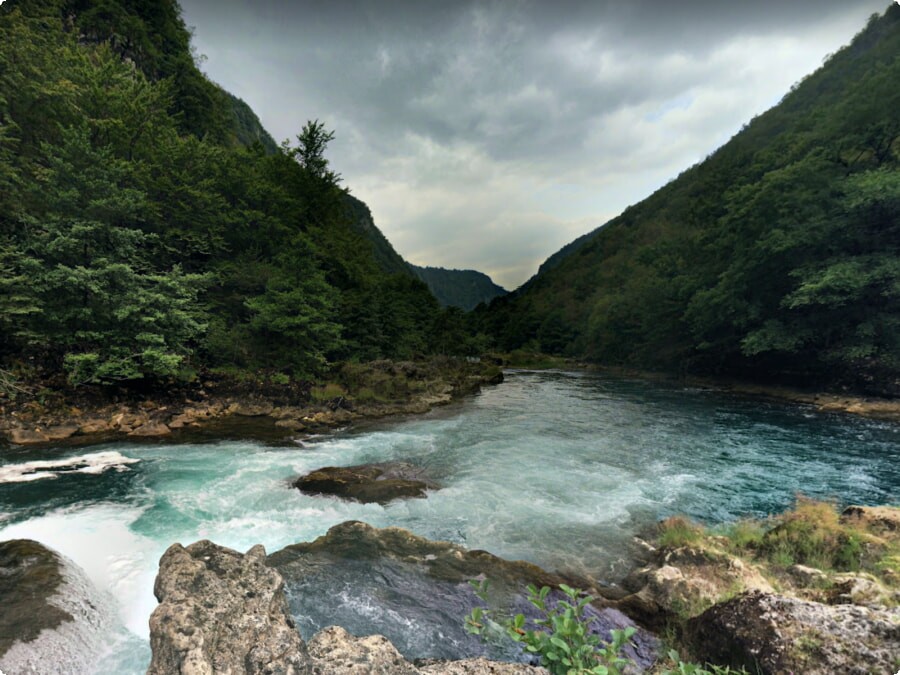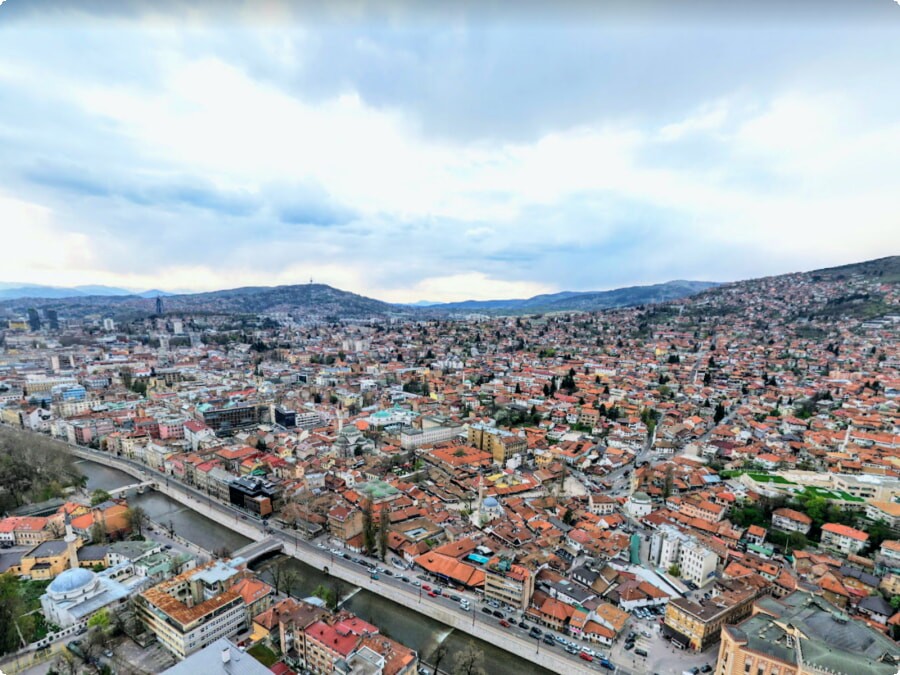How to Travel to Bosnia and Herzegovina on a Budget
Despite the scars left behind from the war, Bosnia is a safe and vibrant country. There are plenty of things to do in the capital and the countryside.
Taking advantage of local food discounts can help you save on dining costs. For example, traditional food joints often offer a small and big portion of cevapi (meat fingers). Those eating smaller portions pay less.
1. Stay in Sarajevo
The main city of Sarajevo is a fantastic place to explore. It’s easy to walk around the city, and you can find free walking tours led by locals which are a great way to learn more about the war history of Sarajevo.
Many people are worried about traveling to Bosnia and Herzegovina, but it is perfectly safe for travelers. The country has beautiful nature that is popular with mountain hikers, and the people are friendly and hospitable. It’s also really affordable to travel to Bosnia and Herzegovina, as it is one of the cheapest countries in Europe.
When planning a trip to Bosnia and Herzegovina, it’s recommended to book your flights in advance to get the best deal on airfare. It’s also a good idea to buy a return ticket, as this can save you up to 60 percent on your flight.
Another great way to save money is by eating at local restaurants and avoiding tourist traps. For example, you can find delicious Bosnian cuisine for a fraction of the price at local cafes and restaurants. For example, a cup of coffee costs just 1 Euro, and a pint of beer is about 2 Euros. You can also save by buying food from street green markets, where you can find cheap produce and meats like beef pastrami.

2. Rent a car
Bosnia and Herzegovina isn’t a cheap destination, but it’s not overly expensive either. For budget travelers, a car rental is the best way to get around. It will allow you to travel at your own pace and to visit all of the country’s highlights. For example, you can rent a car in Sarajevo Airport from 18 eur per day, in Tuzla Airport - from 17 eur per day.
When it comes to eating, the country has some great options for budget eaters. You’ll find that many traditional slow food joints offer both small and large portions of their dishes. For example, if you order a small portion of cevapi, it will typically come with five meat fingers, and the big portion may have ten. Similarly, Bosnian pie makers will often charge by weight so you know exactly how much you’re getting.
It’s important to remember that the country is still mined, so be sure to stay on marked paths and roads when traveling to remote areas. You’ll also want to make sure that you follow all local laws as there are sometimes severe consequences for drug possession and other serious offenses. The best way to avoid any issues is to have your travel documents ready at all times and to always carry enough cash. This will help you avoid any problems and will keep your trip as stress-free as possible.

3. Hitchhike
Hitchhiking is a lot of fun, inexpensive adventure and a great way to meet the locals. It also teaches you two important masculine values: how to solve problems on your own, and how to be confident while doing so.
The best place to hitchhike is on a main road out of town. Look for a roundabout, traffic lights or speed bumps where cars will have to slow down. Choose a spot that is easy to see (no cars will stop for you if they are driving past at 80 mph). Try not to stand too close to the highway, as that’s dangerous and annoying for drivers.
If you want to visit more remote parts of Bosnia, consider renting a car. The bus system in the country isn’t cosy, fast or reliable and it can be difficult to get around outside of the major cities.
Tap water is safe to drink in Bosnia and Herzegovina, but bottled water is quite cheap as well. You can save even more money by buying your supplies at the street green markets, where you will find a wide variety of fruit and vegetables as well as cottage cheese, sour cream and milk that are much cheaper than at supermarkets or deli stores.

4. Eat local
As one of Europe’s cheapest countries, it is easy to travel to Bosnia and Herzegovina on a budget. A cup of coffee can cost as little as 1 Euro and a large pint of beer costs only 2.5 Euros in most places. The prices are even lower if you go to local restaurants and cafeterias.
When ordering a burek in a restaurant look for a menu with 'buregdzinica' (burek shop). Locals know that the best pita is made by shops that specialise in this dish. The shop owners will make the pita in front of you and fill it with whatever you want. The most popular options are meat or cheese but you can also try it stuffed with vegetables and a variety of sweet toppings.
Stuffed vegetables are a speciality of Bosnia and Herzegovina and can be found in many dishes, such as dolma, sarma or punjena paprika, which consists of stuffed bell peppers. They are delicious and often accompanied by rice or sour cream. Trying these traditional dishes is an excellent way to taste a true flavour of the country and to learn about its history.

5. Stay in a hostel
Despite its recent history, Bosnia and Herzegovina is a safe and welcoming destination for travellers. The scars of the war are visible all around, but it’s an incredibly diverse country with beautiful mountains and rivers, delicious food, and a fascinating culture.
The best way to save money on accommodations is to stay in a hostel, especially in the off season. Hostels are a great place to meet other travelers and find out about what to see in the area. They also offer a variety of budget options, such as dorms and private rooms.
If you’re looking for a cheap way to stay connected while in Bosnia and Herzegovina, the best option is to use a prepaid SIM card. You can purchase a BH Telecom card at most kiosks around the country and load it with data as you need it. It’s also possible to purchase a SIM card at the airport before your trip.
In the cities, you can shop at local street green markets for a variety of fresh fruits and vegetables at a fraction of what you’d pay at supermarkets or deli stores. You can also get cheaper bottled water and cottage cheese, as well as beef pastrami from local producers.
6. Stay in a hotel
Although Bosnia is a little off the beaten path and not as popular as Croatia and Montenegro, it's full of breathtaking mountain scenery and fascinating culture that makes for an amazing vacation. But it's not without its challenges. It's not easy to get around, English isn't always spoken, and many of the scars left by the 90s war are still visible.
But, if you're willing to be flexible and have a bit of patience, it's well worth it. There's plenty to see and do in Bosnia, from rafting the rivers to skiing the slopes to visiting the former bunker that Josip Tito built for himself. And if you're a budget traveler, there are ways to save money during your trip.
For example, hostels like Hostel Miran and Hotel-Restaurant Kriva Cuprija are great options for backpackers on a budget. You can also look into staying in etno villages, which are designed to limit human impact on the environment and preserve traditional culture. Another way to save is by renting a car, which can be an efficient and inexpensive way to travel around Bosnia. Plus, you'll have more freedom to explore other parts of the country, such as Sutjeska National Park, Kravice Waterfalls, Skakavac, and Blagaj Tekke.
7. Take a day trip
While Croatia and Montenegro are popular hotspots, Bosnia is still flying under the radar for many travelers. It offers stunning mountain scenery and a unique culture. Plus, English isn’t widely spoken, so you can really immerse yourself in the local scene.
Check out the cobbled alleyways in Sarajevo’s Old Town, watch skilled divers jump off the iconic bridge in Mostar, or take a trip to the Vrelo Bosne nature reserve for hiking trails and waterfalls. And if you’re looking for more adventure, book a tour to the spectacular Perucica Forest Reserve, a protected area that is one of the last remaining rainforests in Europe (and a UNESCO World Heritage Site).
Although crime is relatively low in Bosnia and Herzegovina, it’s still important to be mindful of your belongings at all times. Make sure you keep your valuables secure, and only carry enough cash to cover your immediate expenses. Also, be sure to pack plenty of layers and waterproof gear when visiting the mountains in winter. Also, bring a map and know how to navigate in case you get lost! Lastly, it’s always smart to have travel insurance. Click here to compare and buy affordable travel insurance policies.
